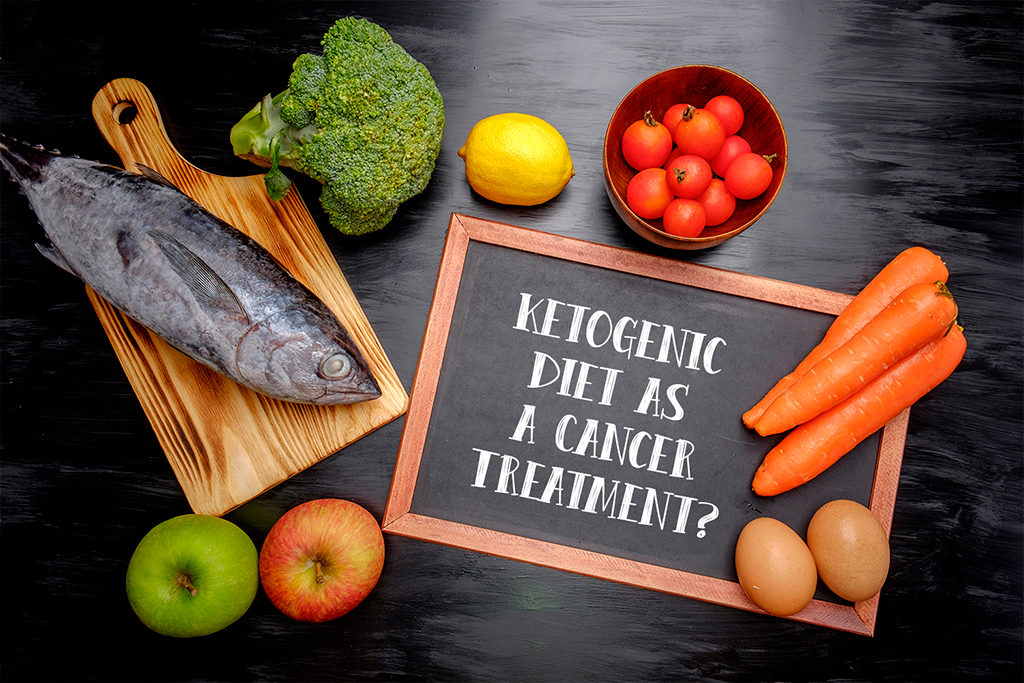

Ketogenic Diet as a Cancer Treatment?
Ketogenic Diet as a Cancer Treatment? Every day on the internet we find something new in regards to diet and preventing and healing cancer. More and more people are realizing that FOOD IS MEDICINE and, equipped with the right understanding of our individual biochemistry, we can help our bodies perform at their optimal best.
Current research and high-value providing people in the health industry are pointing towards the ketogenic diet (aka keto) as a means of helping those going through cancer. It is worth exploring this popular diet as it correlates to the healing that so many people are after.
Even with all the technological advances in healthcare in regards to cancer, we still are not addressing the root cause of cancer to the degree of concern that we should be. Prevention is key. Working with our own bodies’ defense mechanism is key.
This article isn’t claiming that the ketogenic diet is for everyone, is *thee* cure, or a magic bullet… it’s merely to provide evidence and opinions around the ketogenic diet and it’s link to helping cancer.
What is the ketogenic diet?
The keto diet is a high-fat, moderate protein, low carbohydrate diet that forces the body to burn fat rather than carbohydrates. (Keep in mind- sugar is a carb!)
The goal is for effective ketone formation within the body. Ketones are produced in the liver through metabolizing fatty acids and act as a form of energy. They can even pass the blood-brain barrier!
The diets that produce ketones at higher levels are the ones that are low in carbohydrates (50-80 grams a day) and are moderate in protein.
Does sugar fuel cancer cells?
There are studies that talk about sugar feeding tumors and how cancer cells have a hefty appetite for glucose— aka simple sugars.
Dr. Jockers (DNM, DC, MS) who is a doctor of natural medicine, functional nutritionist and corrective care chiropractor writes about the ketogenic diet stating: “Sweet foods and starches are not genetically congruent to eat on a regular basis. Our ancestors looked at these as rare delicacies. Most people in our society today are raised on a steady diet of sugars, grains and other starches. Studies have shown that sugar is the fuel source for cancer and creates an environment of chronic inflammation that leads to other degenerative disease processes.”
There was a study done in July 2018 by Weill Cornell Medicine and Columbia University that concluded that a ketogenic diet could even help cancer medicine act more effectively in the body. It was a study performed in mice and was in relation to insulin and sugar intake and certain PI3K inhibitors.
PI3K, in the medical community, is believed to be a huge therapeutic target for cancer treatment. This is based on studies that show that hyperactivity of PI3K signaling correlates to human tumor progression and the invasive potential of cancer cells. [Source]
In an interview with the Memorial Sloan Kettering Cancer Center, Oncologist Dr. Neil Lyengar -who specializes in breast cancer- talked about the ketogenic diet and specific cancer drugs. He states, “In fact, 70% of all cancers have mutations in the signaling pathway of which PI3K is a part. A key component of that pathway is insulin, a hormone that controls our blood sugar levels and has many other important functions.”
For the record, Dr. Lyengar is not fully sold on the ketogenic diet for every kind of cancer but does see a keto diet’s benefits in many of them and certainly sees the benefits in lowering our sugar intake as a whole when it comes to treating and preventing cancer.
The biggest point here- Insulin plays a role in cancer. And our insulin levels are directly tied to how much sugar we consume.
The promising studies of a ketogenic diet in cancer patients
It should not be taken lightly that reducing our sugar intake can help starve cancer. If preventing cancer, or treating is, is the goal– lowering our sugar intake ought to be an action taken.
Dr. Axe, one of the top holistic doctors in the world, is a huge advocate for the keto diet when it comes to cancer. His big takeaway is how it’s no mistake that many of the foods on the ketogenic diet are known as “cancer healing foods.” He states: “There are several medical studies — such as two conducted by the Department of Radiation Oncology at the Holden Comprehensive Cancer Center for the University of Iowa, and the National Institutes of Health’s National Institute of Neurological Disorders and Stroke, for example — that show the ketogenic diet is an effective treatment for cancer and other serious health problems.” (See that study here.)
Getting rid of refined sugar and highly processed carbohydrates may be effective in reducing or fighting cancer.
Dr. Mark Hyman, MD, is a big supporter of the Ketogenic diet. If not for the long term, then at least for short. He says about the ketogenic lifestyle: “There are other neurological conditions where they’re seeing improvements and benefits. For example, there’s research on brain cancer, glioblastoma, and ketogenic diets.”
Something most Doctors can agree on, even if a full-blown ketogenic is not one of them, is a low-glycemic diet. Dr. Hyman also states, “I would say that a low glycemic diet is right for everyone. And then what I mean by that is a diet that doesn’t raise your blood sugar and insulin. Because that is the single thing that drives heart disease, cancer, type 2 diabetes, Alzheimer’s, and much more.” (Source)
Lastly, there is something to be said about how a ketogenic diet is something that can be implemented immediately and could be measured after only a few weeks to see if it is having an impact or not. If the results are looking great- it is something “natural” that a patient can continue.
The conclusion in this study states, “Ketogenic diets could represent a potential dietary manipulation that could be rapidly implemented for the purpose of exploiting inherent oxidative metabolic differences between cancer cells and normal cells to improve standard therapeutic outcomes by selectively enhancing metabolic oxidative stress in cancer cells.”
Popsicle Ketogenic Recipe — MACA POPS
This recipe is high in superfoods and acts as a “sweet treat” that is still keto-friendly. The ingredients include manuka honey (which is highly anti-fungal and great for immunity) and maca which is an adaptogen that comes from a cruciferous plant in the Andes of Peru– Maca has been shown to support physical activity and help with depression.
Ingredients for 3 popsicles (Roughly 2.6oz each)
Click here for the recipe
Courtesy of Katey Yurko @thevioletfog

hey there
I'm Karen!
I have found my cancer journey to be a positive and profound transformational experience. I’m inspired to share my healing journey here, and trust you’ll find hope, encouragement and purpose as you discover the healing power that lies within you.
Join
The Mailing List!
By signing up for my newsletter, you agree with our Privacy Policy and Terms & Conditions.


